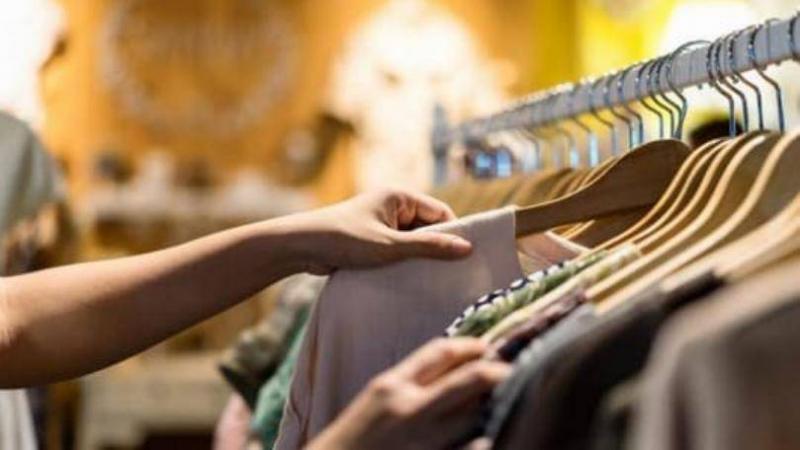With Christmas and New Year’s just a few days away, the commercial markets are still witnessing a sluggish activity. "The holiday atmosphere swings between 'despair' due to the financial and economic collapse and the blockade of the political horizon, and 'hope' that we are counting on the arrival of the Lebanese expatriates, especially during the occasion of the glorious Christmas," says the Secretary-General of the Economic Bodies and President of the Beirut Traders Association, Nicolas Chammas, in a statement to "Al-Markaziyya."
So far, the activity remains timid, and "we are greatly counting on the breath of oxygen that the Lebanese expatriates inject into the ailing economy. This will put us at a crossroads at the beginning of the new year: either to halt the collapse of the commercial sector so that it becomes ready for a new, albeit modest, launch, or if the season is weak, it will lead us to the path of stumbling and the closure of more institutions and shops... For tomorrow is near to those who can see!"
On another note, Chammas conducted a commercial review of the year 2022 and noted that: the year 2022 was better than the previous one, yet it remained below expectations. He attributed this to the fact that the first half of 2021 was still under the pressure of the COVID-19 pandemic and the repercussions of the August 4, 2020 explosion, the effects of which continued to unfold until last year, especially concerning the commercial infrastructure as a large number of commercial establishments in Beirut, the Metn coast, and neighboring areas were significantly affected by the explosion. There were significant delays in the rebuilding and rehabilitation process due to issues related to insurance and compensation for damages, while the state did not provide any funding at that time, and funds in fresh dollars were limited, which all delayed the resumption of the commercial infrastructure.
Regarding demand, Chammas states that "the purchasing power among citizens has significantly declined due to inflation, which has exceeded a thousand percent cumulatively since October 17, 2019, until today. In 2021, it was weak; however, this year improved by about 15 to 20 percent, even though it is still below our expectations. This is due to the activation of the economic wheel in summer, particularly in the tourism sector, and somewhat in the commercial one. The tourism sector recorded a very satisfactory movement, contributing around 4 billion dollars to Lebanon during the summer, coming from Lebanese expatriates and tourist groups from Egypt, Jordan, and Iraq, which help stimulate the economic wheel in Lebanon, albeit seasonally."
He adds: "The commercial sector, in all its components, benefited from this tourism activity, like restaurants, hotels, cafes especially in rural areas, in addition to beach resorts and nightclubs. However, unfortunately, the commercial sector only captured a small share of the substantial tourism activity, possibly because expatriates and tourists allocated their funds more for relaxation, dining, and nightlife rather than shopping."
From here, Chammas directs an appeal to the Lebanese expatriates "who visit their homeland during these holidays to look at the Lebanese market where merchants offer very reasonable prices and make tremendous efforts in this aspect. They have also imported all kinds of goods to meet all tastes. We hope that during this holiday season and the upcoming summer season, expatriates and tourists will allocate the necessary funds for shopping from commercial stores in Lebanon with additional amounts earmarked for the commercial sector." He highlights a "problem rooted in the absence of any financial mediation through banks, which limits the transfer of funds from one sector to another. It is noteworthy that if the funds do not come directly, they will not benefit from those funds at all... Hence, there is a necessity to stimulate the banking system through the required restructuring to restore financial intermediation, allowing for an effective distribution of financial resources across all Lebanese sectors."
He did not overlook to mention that "the main impediment this year was represented by taxes, such as the 3 percent tax on all imports, which are taxed with VAT alongside the customs dollar that has risen from 1,500 pounds to 15,000. Taxes have increased relatively within a large basket of products and commercial items... While it is true that a large part of fast-moving consumer goods, such as food products, is exempt from taxes, they generally contribute to increasing the structure of costs and prices in Lebanon."
He clarifies that "the commercial sector has three parts: the basic daily consumption of food and drink... then durable goods like cars and furniture, for example, and luxury items with a very broad range. The first part saw acceptable movement, while the other parts did not move as they should have, despite the noticeable increase in demand for cars, which consumers sought out to avoid the hefty rise in the customs dollar."
"And we hope that the new year will be better than the current one," according to Chammas, adding that the commercial sector is in dire need of consumer enthusiasm to secure its continuity, which will remain "at stake" in front of the obligations of the upcoming year, like other economic sectors.




